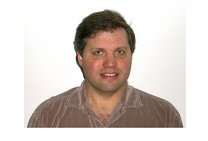Oral history interview with Manfred Frasch
- 1998-Dec-17 – 1998-Dec-19
Manfred Frasch was born in Holzgerlingen, Germany, in Swabia. His father was what we would call a contractor, building mostly wooden roofs. This business was begun by Frasch's grandfather, and the Frasch family has lived in that area for many generations. Manfred lived on a farm, where his mother did the farming. His father's workshop was also on the farm. He was brought up in the Lutheran faith. He had an early curiosity about how things work, leading him to chemistry and biology. After finishing gymnasium, Frasch completed his compulsory military service. He entered the University of Tübingen, where he majored in biochemistry. He also studied molecular biology at the University of Munich, with which Tübingen had an exchange program. His diploma thesis concerned gene regulation in Drosophila; he found Drosophila so fascinating that he has remained in that field. Liking the projects, the atmosphere, and the independence of Tübingen, Frasch decided to stay there for his PhD , using biochemical rather than genetic techniques in his research into Drosophila. He eventually learned cloning techniques and decided to pursue genetic approaches rather than biochemical. He worked in Friedrich Bonhoeffer's lab, where he had a great deal of independence. Wanting to see more of the world and wanting to expand his scientific horizons, he applied for postdocs in the United States. He accepted a position in Michael Levine's lab at Columbia University, working on the even-skipped gene. He had always intended to return to Germany, and he accepted a position as a research fellow in Christiane Nüsslein-Volhard's lab in the Department of Genetics at the Max Planck Institute for Developmental Biology, where his focus was on mesoderm development. There, work on S59 led to the characterization of tinman and bagpipe. Frasch was not sanguine about his career prospects during his last year at the University of Tübingen, so he decided to return to the States, and accepted a position in the Brookdale Center for Molecular Biology at Mount Sinai School of Medicine in New York City. There he established his own lab, where he hopes to find clinical relevance for his mesoderm and heart development research. He began as an associate professor in the Brookdale but is now a tenured associate professor. He is married to Hanh Thi Nguyen, who is also a scientist.
Access this interview
By request 1 PDF Transcript File and 10 Audio Recording Files
Fill out a brief form to receive immediate access to these files.
If you have any questions about transcripts, recordings, or usage permissions, contact the Center for Oral History at oralhistory@sciencehistory.org.









